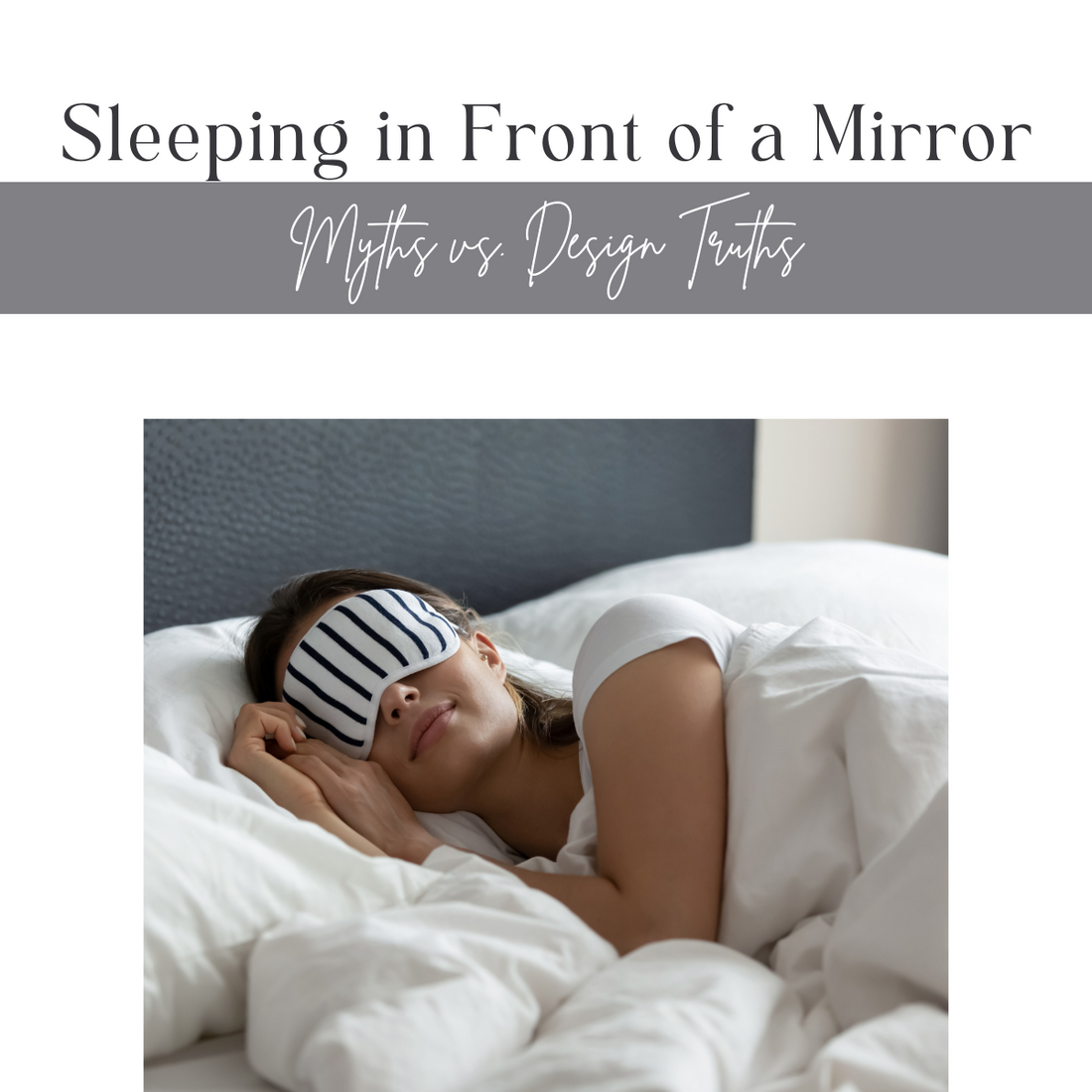
Sleeping in Front of a Mirror: Myths vs. Design Truths
Share
Some people claim it takes away energy, while others say it's just a superstition. This is the truth about mirrors in bedrooms and how to put them in the appropriate position.
This blog will tell you about the myths, cultural beliefs, Feng Shui rules, and scientifically proven design suggestions for sleeping in front of a mirror. This will help you choose the ideal option for comfort, energy, and style.
Why Sleeping in Front of a Mirror Is Such a Big Deal

Mirrors have fascinated humans for centuries—symbolizing self-reflection, beauty, and even spiritual portals in different cultures. In bedrooms, however, they spark debates:
- Feng Shui followers see them as disruptors of restful energy.
- Sleep experts point to light reflection and sleep disturbance.
- Designers see them as functional and aesthetic tools.
Understanding each perspective helps you decide if a mirror facing your bed is harmless—or a habit worth changing.
Common Myths About Sleeping in Front of a Mirror

Myth 1 – Your Soul Gets Trapped While You Sleep
Some spiritual and Feng Shui traditions say that mirrors bounce energy (Chi) around the room, which keeps you from getting a good night's sleep. Some civilizations also say that seeing your own reflection at night could make your spirit "confused."
Myth 2 – Mirrors Invite Bad Luck
Some people think that mirrors facing the bed bring bad energy or make issues worse, just like shattered mirrors do. Even though there is no scientific basis for this, it is still a major cultural force in many Asian homes.
Myth 3 – You’ll Age Faster
A newer myth says that sleeping in front of a mirror speeds up aging because it "reflects back" bad energy. This is just a story and not based on science.
What Feng Shui Bedroom Mirror Rules Actually Say
Feng Shui, the ancient Chinese practice of arranging spaces for optimal energy flow, generally advises:
- Avoid mirrors directly facing the bed, especially where you see your reflection upon waking.
- If unavoidable, cover the mirror at night with a cloth or screen.
- Use mirrors to reflect beautiful views, not clutter.
The Science of Mirrors and Sleep
Sleep science looks into how mirrors affect your environment physically, which is different from Feng Shui:
-
Light Reflection: Streetlights, passing cars, or even digital screens can bounce off mirrors and disturb melatonin production.
- Perceived Movement: If you wake and see your reflection move, it can trigger a startle response, disrupting sleep.
- Psychological Effect: Some people feel “watched” in rooms with large mirrors facing the bed, raising subconscious anxiety.
Science doesn't say that mirrors are "bad luck," but it does say that they can change how well you sleep by changing the light and how you think.
How to Style a Bedroom Mirror Without Disturbing Sleep
If you love the look of mirrors in your bedroom but want to sleep well, consider these design-friendly compromises:
1. Change the Angle
Place mirrors so they reflect natural light from windows during the day but avoid direct sightlines from your bed.
2. Use Mirror Panels or Art-Mirror Hybrids
Mirrors framed like art or placed above dressers add elegance without facing the bed.
3. Try Mirrored Furniture
Nightstands or wardrobes with mirrored accents give the illusion of space without large reflective surfaces opposite your sleeping position.
4. Cover at Night
If your space is small and a mirror must face the bed, use a sliding panel, curtain, or folding screen to cover it after dark.
Final Thoughts
Sleeping in front of a mirror might not ruin your life, but it could make your nights less peaceful. It doesn't matter if you believe in Feng Shui, modern design, or sleep science; the important thing is to position things on purpose. Don't only believe in superstitions; think about light, reflection, and your own comfort when choosing where to put your bedroom mirror.
If you liked this tutorial, tell your friends about it, save it for your next bedroom makeover, or leave a comment with your own mirror placement stories.
FAQs About Sleeping in Front of a Mirror
Is it bad to sleep in front of a mirror?
Feng Shui advises against it, and science notes it can reflect light and movement, disrupting sleep. It’s best to angle mirrors away from the bed.
What does Feng Shui say about mirrors in the bedroom?
Feng Shui rules recommend avoiding mirrors facing the bed, as they can bounce energy and cause restless sleep.
How do I cover a mirror at night?
Use a decorative curtain, sliding panel, or folding screen to block the reflection when you sleep.
Can a mirror improve bedroom design without affecting sleep?
Yes, by placing mirrors to reflect natural light or art, rather than your bed, you can enjoy both beauty and comfort.
Do mirrors cause nightmares?
There’s no scientific proof, but some people report unsettling dreams when sleeping in front of a mirror—likely due to subconscious perception.
